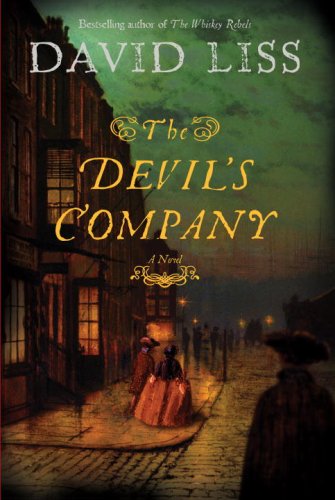The Devil’s Company
Fans of David Liss’s Benjamin Weaver series will not be disappointed by his latest installment. Benjamin Weaver makes his living as an independent thief-taker, detective, body guard and sometimes thug. But after a seemingly simple job goes wrong, he is forced to work for the mysterious Jerome Cobb, who has threatened to ruin Weaver’s family and friends if he does not comply.
Filled with Dickens-like characters and descriptions of London’s dangerous back streets, The Devil’s Company finds Weaver forced into the heart of the British East India Company where he must negotiate a world of foreign spies, corporate secrets and deadly rivals. At the heart of this tale is the Company’s attempt to remain the primary importer of textiles despite growing competition from France and the American colonies, the machinations of Indian suppliers to secure a more equitable relationship with the Company, and Parliament’s attempts to protect the British wool industry.
Liss’s ability to slip into the story historical tidbits and lessons in 18th-century manners, fashion and commerce is masterful, as it neither feels pedantic nor contrived. Also, his period vocabulary is authentic without being archaic. But what makes the Benjamin Weaver series so compelling is the protagonist himself. Born in London to Portuguese Jewish parents, Weaver stands between two cultures, often defying the expectations of both of them while trying to figure out his place in the world. This is a character Liss’s readers admire for his uncommon streets smarts, but care about because of his personal struggles with religious bigotry and difficult relationships with his family and his people.










